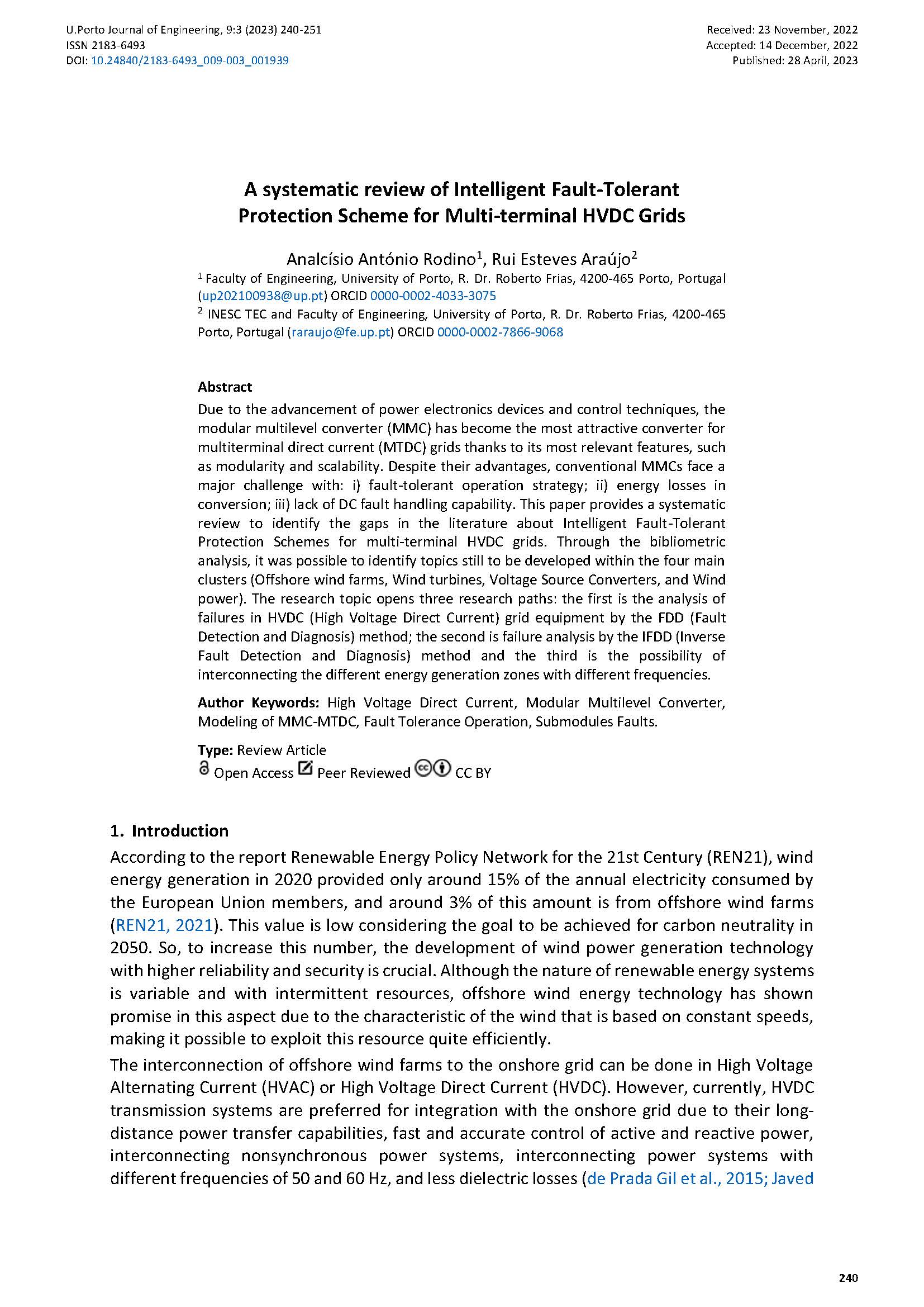A systematic review of Intelligent Fault-Tolerant Protection Scheme for Multi-terminal HVDC Grids
Main Article Content
Abstract
Due to the advancement of power electronics devices and control techniques, the modular multilevel converter (MMC) has become the most attractive converter for multiterminal direct current (MTDC) grids thanks to its most relevant features, such as modularity and scalability. Despite their advantages, conventional MMCs face a major challenge with: i) fault-tolerant operation strategy; i) energy losses in conversion; iii) lack of DC fault handling capability. This paper provides a systematic review to identify the gaps in the literature about Intelligent Fault-Tolerant Protection Schemes for multi-terminal HVDC grids. Through the bibliometric analysis, it was possible to identify topics still to be developed within the four main clusters (Offshore wind farms, Wind turbines, Voltage Source Converters, and Wind power). The research topic opens three research paths: the first is the analysis of failures in HVDC (High Voltage Direct Current) grid equipment by the FDD (Fault Detection and Diagnosis) method; the second is failure analysis by the IFDD (Inverse Fault Detection and Diagnosis) method and the third is the possibility of interconnecting the different energy generation zones with different frequencies.
Downloads
Article Details

This work is licensed under a Creative Commons Attribution 4.0 International License.
Authors who publish with this journal agree to the following terms:
- Authors retain copyright and grant the journal right of first publication with the work simultaneously licensed under a Creative Commons Attribution License that allows others to share the work with an acknowledgement of the work's authorship and initial publication in this journal.
- Authors grant the journal the rights to provide the article in all forms and media so the article can be used on the latest technology even after publication and ensure its long-term preservation.
- Authors are able to enter into separate, additional contractual arrangements for the non-exclusive distribution of the journal's published version of the work (e.g., post it to an institutional repository or publish it in a book), with an acknowledgement of its initial publication in this journal.
- Authors are permitted and encouraged to post their work online (e.g., in institutional repositories or on their website) prior to and during the submission process, as it can lead to productive exchanges, as well as earlier and greater citation of published work (See The Effect of Open Access).

